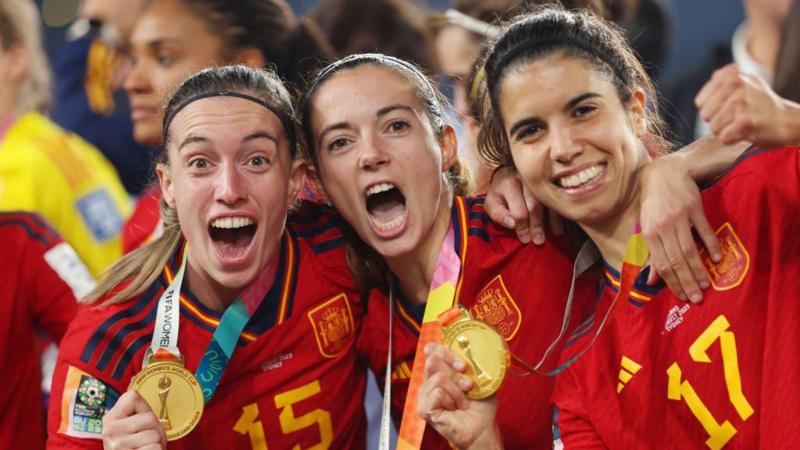BBC and ITV Clinch Broadcasting Rights for 2027 World Cup!




In a significant development for sports broadcasting in the United Kingdom, both the BBC and ITV have jointly acquired the broadcasting rights for the 2027 Women's World Cup. This global football event is scheduled to take place in the vibrant and football-rich country of Brazil. This marks a pivotal milestone in the coverage of women's sports, mirroring a growing appreciation and enthusiasm for women's football on a global scale.
The decision to host the 2027 Women's World Cup in Brazil brings the tournament back to South America after a long hiatus. Brazil, known as the country where "football is king," offers a rich cultural tapestry and a deep-rooted passion for the sport, promising an electrifying atmosphere for the games. With cities like Rio de Janeiro, Sao Paulo, and Brasilia potentially serving as host cities, the tournament is expected to be a spectacular festival of sport.
For the BBC and ITV, this acquisition underscores their continued commitment to women's sports. Both networks have a history of supporting and broadcasting women's football, but sharing the rights to one of the biggest events in the sporting calendar symbolizes a significant investment in the future of the sport. It ensures that millions of viewers in the UK will have free, unrestricted access to live coverage of the matches, making it possible for fans to follow every tackle, goal, and victory without missing a beat.
This broadcasting deal is expected to have far-reaching effects on the popularity and visibility of women's football. Historically, media coverage has played a crucial role in shaping public interest and participation in sports. By choosing to broadcast the Women's World Cup, the BBC and ITV are not only providing a platform for elite athletes to showcase their skills on a global stage but also inspiring the next generation of female footballers.
Moreover, the precedent set by previous Women's World Cups, particularly the record-breaking 2019 tournament in France, shows a clear trajectory of growing viewership and engagement. The 2019 edition broke numerous records, with significant spikes in viewer numbers across various continents, showcasing the global appeal of women’s football. The thrilling performances, coupled with extensive coverage, lifted the profile of many female footballers and brought well-deserved recognition to the women’s game.
The choice of Brazil as the host country adds another layer of excitement and potential for the 2027 Women's World Cup. Brazil's women's national team has been a formidable force in international football, led by legendary players such as Marta and Formiga. Hosting the World Cup offers Brazil a chance to spotlight its talents and further the development of women's football across the nation and the continent.
As preparations for the tournament begin, there will undoubtedly be a focus on the infrastructure and readiness of the venues, alongside initiatives aimed at leveraging the World Cup to boost social and economic benefits. For the BBC and ITV, the next step will involve planning comprehensive coverage that captures the essence of the tournament and its host nation. This will likely include detailed pre-game analyses, live match coverage, and post-match reviews, as well as stories that focus on the teams, the players, and the diverse culture of Brazil.
In conclusion, the acquisition of broadcasting rights by the BBC and ITV for the 2027 Women's World Cup is more than just a win for British broadcasting; it's a stride forward for women's football. This partnership will not only bring the excitement of the World Cup to homes across the UK but also play a crucial role in highlighting the skill, dedication, and passion of women footballers globally. As anticipation builds up for this monumental event, all eyes will be on Brazil and how this tournament will drive the future of women's football.